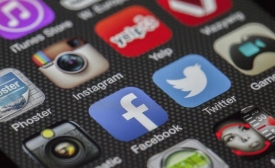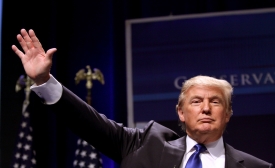social media

TOMORROW: Pablo Barberá on how social networking platforms are transforming political processes around the world.
Six days after taking office, President Donald Trump is facing the first international crisis of his administration. And it’s unfolding on Twitter. Following through on campaign promises to crack down on immigration, Trump signed executive orders to both kick-start the construction of a border wall with Mexico and block federal grants for “sanctuary cities“ - jurisdictions that offer safe harbour for undocumented immigrants.
In November, 2016 Oxford Dictionaries proclaimed “post-truth” the word of the year. The choice was obviously a reflection of two important political campaigns: Brexit and the US Presidential elections. In both campaigns truth became subservient to political gain. The distinction between fact and fiction eroded as fake news spread globally through social media sites. However, Oxford Dictionaries’ choice was, to a certain extent, a publicity stunt in its own right.
Conflict and militancy may be first things that occur to many about Iraq, but a group of young fashion-conscious Kurds are hoping to help project a brighter, more optimistic image - and perhaps effect social change along the way.
Trump is expected to lead on cybersecurity, even as he assumes the job of leader of the free world amid ongoing investigations in federal law enforcement and probes on Capitol Hill about the extent to which cyberattacks and hacks of political targets during the 2016 campaign were linked to Russian state security or their proxies. Investigators also are exploring whether there were any direct links between hackers and individuals involved in the Trump campaign.
As the new president-elect prepares to take office, traditional analysts scramble to prepare policy papers on their public diplomacy recommendations. In keeping with the twist of the Trump candidacy, it seems fitting to turn the tables and see what insights public diplomacy may glean from the Trump run. Social media, emotion, and identity are redefining traditional strategies, and Trump has exploited these shifting communication dynamics.
When dealing with the Trump administration, China should pay attention to several factors. First, China should get to know Trump's political ambitions, and establish contacts with his core team. China should strengthen the role of non-governmental actors in public diplomacy, and improve Sino-US public diplomacy by using think tanks to effectively control conflicts. Last but not the least, China needs to enhance social media communication and promote international discourse.

What can public diplomacy learn from Trump's playbook?







